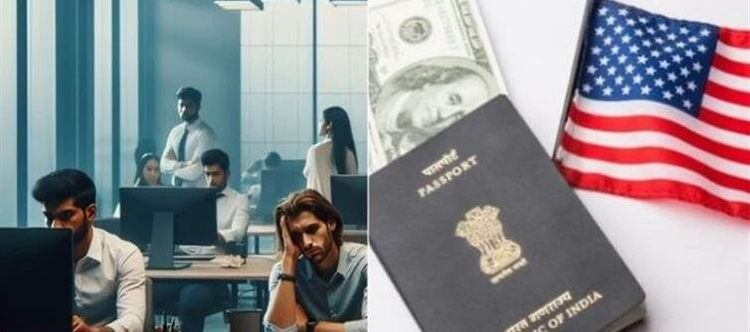
Indian H-1B visa holders cancel travel plans
Two H-1B holders reportedly informed the Washington Post that they had canceled their plans to visit india because they were worried about being denied re-entry into the US. According to the Post, one indian employee voiced concerns about the trump administration's decision to revoke birthright citizenship, fearing that if the legislation is altered, any future children may become stateless and neither indian nor American.
Another indian H-1B worker was reported in the paper as adding, "There's an assumption that everybody who is not a US citizen might be here illegally."
Indian H-1B visa holders are facing additional difficulties as a result of the uncertainty caused by US President Donald Trump's tightening of visa regulations, according to reports. Some employees claim that they are now required to carry documents at all times while they are in public.
With a large portion of H-1B applications coming from indian IT outsourcing companies like Infosys and Cognizant, the US tech sector is highly dependent on foreign labor, particularly Indians.
Companies pay for accelerated processing of visa extensions to offset delays, which "add up" in expenditures, according to a Silicon Valley HR representative who spoke to the Post. According to the representative, the uncertainty "definitely impacts their performance" because "the threat is looming that some action will be taken against them."
Indians face long wait times for residency
Indian computer workers endure a lengthy and difficult journey to obtain permanent residency in the united states due to per-country Green Card limits. Despite working for large corporations, many indians must wait decades for a Green Card.
The CEO of Perplexity, an AI company reportedly valued at $9 billion, aravind Srinivas, disclosed on social media that he has been waiting three years for a green card despite starting a business with hundreds of employees.
Although trump has recently expressed support for the H-1B visa, indian workers are concerned about his administration's overall immigration policies.
The greatest group of H-1B visa holders in the US are indian computer workers. Approximately 65,000 visas are granted each year under the H-1B program through a lottery method, with indians receiving the most of these approvals, followed by Chinese and Canadian citizens.
Tech giants like Amazon, Google, Meta, Microsoft, and apple are major employers.




 click and follow Indiaherald WhatsApp channel
click and follow Indiaherald WhatsApp channel